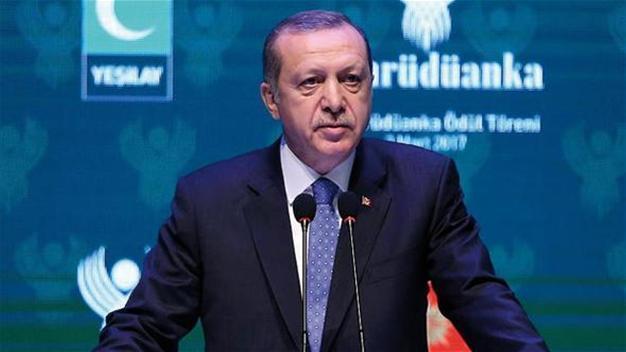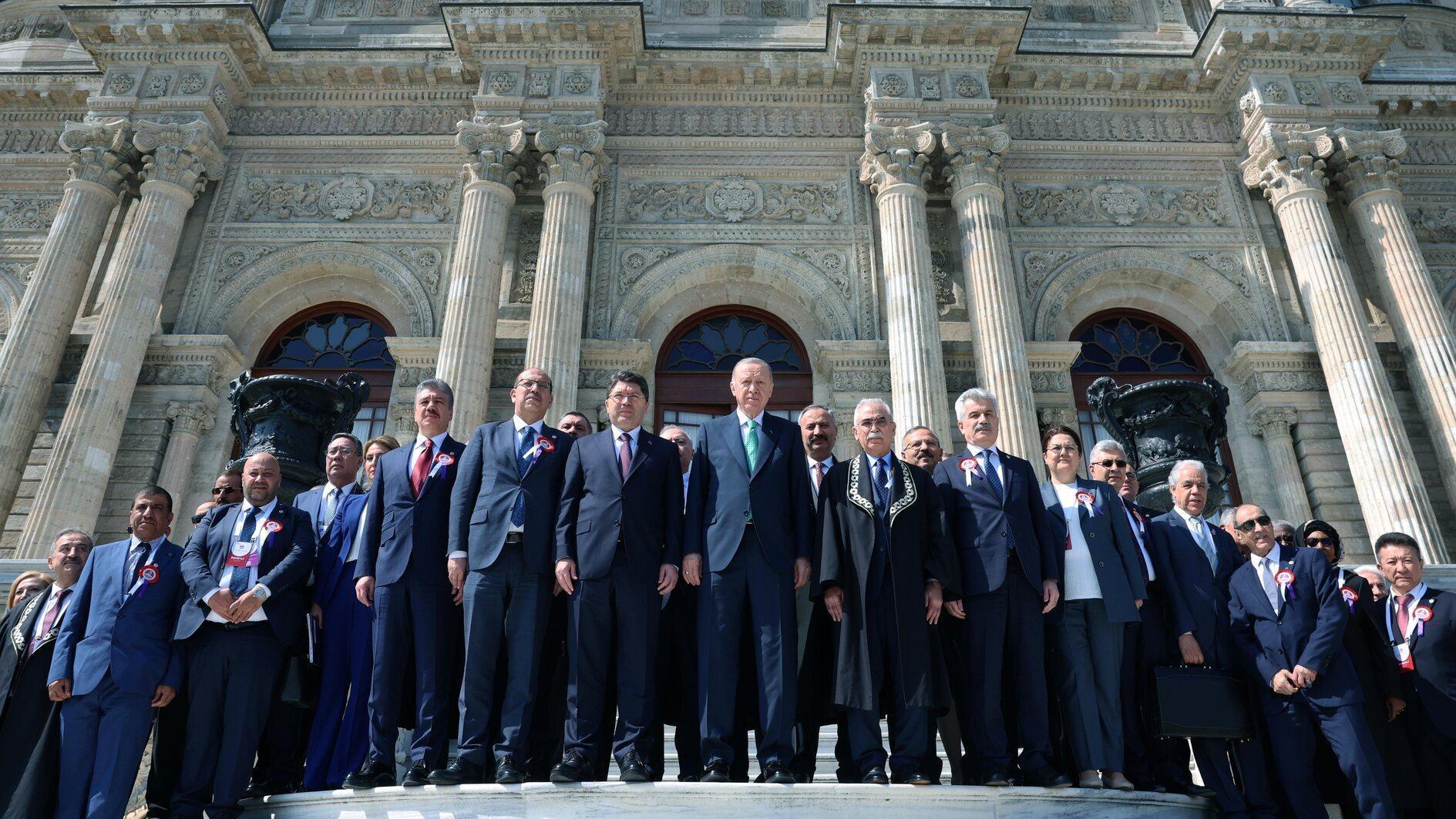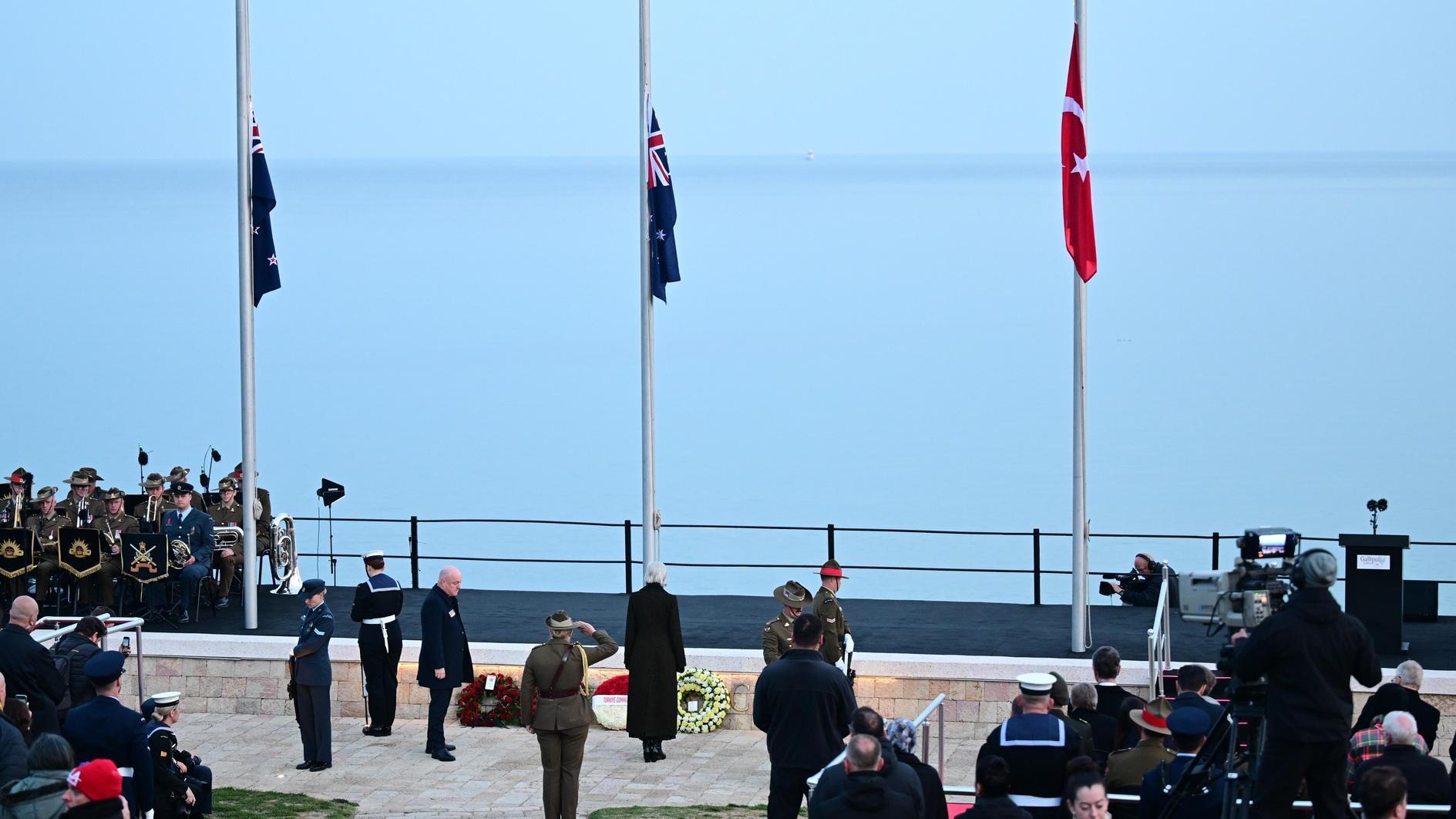President Erdoğan slams Germany over meeting ban
ISTANBUL
 President Recep Tayyip Erdoğan has slammed Germany over its decision to ban Turkish ministers from holding events in two German cities ahead of the April 16 constitutional referendum that will decide whether the current parliamentary system should be shifted to an executive presidency.
President Recep Tayyip Erdoğan has slammed Germany over its decision to ban Turkish ministers from holding events in two German cities ahead of the April 16 constitutional referendum that will decide whether the current parliamentary system should be shifted to an executive presidency.“They need to be put on trial for aiding and abetting terror,” Erdoğan said late on March 3, slamming German authorities for “letting the members of the outlawed Kurdistan Workers’ Party (PKK) leaders to hold rallies while preventing Turkish leaders from addressing their communities.”
On March 2, the municipality of Gaggenau in southwest Germany revoked its permission for Turkish Justice Minister Bekir Bozdağ's meeting, citing concerns about overcrowding. This prompted Bozdağ to cancel his planned visit to Germany altogether.
Economy Minister Nihat Zeybekci’s planned address on March 5 to a Turkish community in western city of Cologne was also cancelled by local authorities over security concerns.
Germany also barred President Erdoğan from holding a planned rally with Germany-based Turkish citizens last year, after the failed July 2016 military coup attempt, widely believed to have been masterminded by the Fethullahist Terrorist Organization (FETÖ).
During his speech, Erdoğan commented on the aforementioned incident.
"I was to participate at a rally via a video conference, but Germany’s Constitutional Court took a decision in two hours, which is a phenomenon not seen anywhere in the world, and prevented me from making a speech,” he said.
Erdoğan also said that Germany allowed PKK figure Cemil Bayık to address a crowd in Germany.
"But they are connecting Cemil Bayık from Kandil and he is making his speech there [Germany]," he said, referring to the Kandil Mountain in northern Iraq where the PKK camps are based.
Germany, home to nearly three million Turkish citizens, is often visited by Turkish politicians ahead of key polls. Votes cast abroad have a significant impact on election results, as the overseas electorate makes up around 5 percent of Turkey’s entire electorate.
Tensions between the two countries escalated last week after German media and politicians sharply criticized Turkey for arrest of Die Welt’s Istanbul correspondent Deniz Yücel on charges of “terror propaganda.”
President Erdoğan responded to Berlin’s criticism of Yücel’s arrest by saying that Yücel was a “German agent” and a member of the PKK.
"It isn't because a correspondent of Die Welt was arrested. It is because this person hid in the German embassy as a member of the PKK and a German agent for one month. When we told them to hand him over to be tried, they refused,” he said.
Erdoğan said he had told German Chancellor Angela Merkel: "Your terrorists are requested by us, and you say justice is impartial and independent. We currently trust our impartial and independent judiciary. Give him up so he can be tried. They first didn't hand him over, but later, somehow, they did. The judiciary did what was necessary and arrested him,” he said.
A source in the German foreign ministry described the suggestion that Yücel, a German-Turkish dual national, was an "agent" as "absurd,” Reuters reported.
Prime Minister Binali Yıldırım, meanwhile, has said that the decision of German authorities is “very unfortunate.”
“The cancelation of rallies is a very unfortunate decision against democracy and freedoms. German authorities should go over their attitude. You allow the representatives of the terrorist groups, but impose bans on those who wave the Turkish flag and those who love their country. That can’t be accepted and no barricade in front of democracy can be put,” Yıldırım said in a rally held in the Central Anatolian province of Kırşehir on March 4, as he added that “democracy is a river that flows loud.”
“Our citizens in Germany will vote ‘yes’ in the face of this attitude and will give a lesson. We believe in that,” he also said.
On March 3, Yıldırım also commented on the incident, saying that FETÖ and PKK have “serious propaganda power in Germany.”
“What I see is that there are unfortunately PKK and FETÖ lovers and they have serious propaganda power. They are depraving the German public opinion. Maybe, politics also come under the effect of that. We’ll see in time, but we want to think well-intentioned. I hope that the friendship won’t further be harmed via moves like these,” he also said.
Deputy Prime Minister Numan Kurtulmuş also commented on the cancelations, saying that “Germany is in a great contradiction.”
“You allow the Turkish citizens in Germany to vote, but close the road to a democratic race. This is an extreme contradiction. It’s against all European values and democracy, human rigthts, freedom of thought, political participation,” Kurtulmuş told journalists late on March 3.
Bozdağ lashed out again on March 4 at Germany, calling the barring of Turkish ministers from holding public meetings an act of "fascism."
“This act against us is a fascist practice, which violates democratic values," Bozdağ told reporters in the Central Anatolian province of Yozgat.
"This not only tramples the German constitution, but also the Declaration of Human Rights to which Germany is a party," he said, adding the move also prevented the Turkish community in the country from exercising their right to assembly, and freedom of expression.
Bozdağ said if the purpose of the ban was an attempt to affect the outcome of the referendum, it would not work.
"Turkish people do not submit to foreign countries’ will when voting, they follow their own hearts, and work their own will," he added.
















